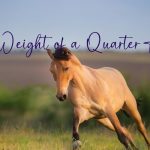How Much Does Horse Feed Cost? On average, a 50-lb bag of horse feed costs between $20 and $30. The cost can vary depending on the type of feed, brand, quality of ingredients used in the feed and where it is purchased. For example, hay or grain may be more expensive when purchased from a local stable or farm supply store than if bought online or at a large store like Tractor Supply Co.
Additionally, higher quality feeds that contain added vitamins and minerals will usually cost more than basic grains.
When it comes to horse feed, the cost depends on factors such as the type of feed, your horse’s nutritional needs and how much you are buying. Generally speaking, a 50-pound bag of quality hay pellets or alfalfa can range from $15-$25. If you have multiple horses with different dietary needs, you may need to purchase a variety of feeds that could add up quickly.
Ultimately, your horse’s diet should be tailored to his individual needs – so while price matters when it comes to feeding your four-legged friend, don’t skimp on quality!
How Much Does It Cost to Feed a Horse Per Day
The cost of feeding a horse per day depends on several factors including the size, age and activity level of the horse. On average, it costs between $6-$15 dollars to feed an adult horse per day depending on their diet which can consist of hay, grain and supplements. However it is important to remember that horses require consistent nutrition for optimal health so you should factor in annual veterinary care when budgeting for your horse’s food expenses.

How Much Does It Cost to Feed a Horse Per Month?
The cost of feeding a horse can vary widely depending on the individual’s needs, size, and activity level. Generally speaking, an adult horse requires about 20-25 pounds of hay per day and 2-6 pounds of grain feed daily to stay healthy. This means that you should plan on budgeting between $200 – $400 each month for your horse’s food costs.
The exact amount will depend on the quality and type of feed you use as well as how much your horse eats. If you are looking to save money while still providing adequate nutrition for your equine companion, it may be worth considering buying in bulk or switching to a lower-cost brand. Additionally, supplementing with natural grasses or hay is also an option worth exploring if possible.
How Long Does a 50 Lb Bag of Horse Feed Last?
A 50 lb bag of horse feed can last anywhere from a few days to several months, depending on the size of your horse and how much it eats daily. It’s important to feed your horse a balanced diet that meets its nutritional needs, so you should always consider the individual needs of your animal when determining how long one bag can last. Generally speaking, if you have an average-sized horse eating 2 lbs per day, then one 50 lb bag would be enough for around 25 days.
However, this number could vary significantly depending on the breed and activity level of your animal – larger horses with higher energy requirements may need to consume more than 2 lbs each day in order to stay healthy. To ensure adequate nutrition for your equine companion, make sure you purchase fresh feeds regularly and monitor their consumption rate closely.
How Much is Horse Feed a Week?
When it comes to determining the cost of horse feed, it depends on a few factors such as the size and age of the horse, type of feed chosen and how much is needed. On average, you can expect to spend anywhere from $20-$200 per week depending on these variables. For most adult horses in good health, one full-sized scoop of grain each day plus free choice hay should cover their nutritional needs.
If your horse has special dietary requirements or is involved in strenuous activity then you may need to look at higher calorie options like sweet feeds or pelleted supplements which will likely increase your weekly costs. There are also several other items that might be necessary for feeding a horse such as salt blocks, mineral licks and electrolytes which could add an additional expense to consider when budgeting for fodder. Additionally, if you choose to buy locally grown hay instead of purchasing baled hay then this could further inflate your weekly expenses by quite a bit due to transportation costs and availability.
Ultimately, there isn’t really an exact answer as every situation is different but understanding what goes into calculating the cost can help give some guidance when estimating what you may have to pay out each week for your four legged friend’s food bill!
How Much Does a 1000 Lb Horse Eat?
A 1000 lb horse needs to consume around 2-2.5% of its body weight in hay or pasture each day, which equates to approximately 20-25 lbs per day. That is equivalent to 10-12 flakes of hay (each flake weighing about 2 lbs) or 25 lbs of good quality grass hay per day. To ensure the horse maintains a healthy digestive system and proper hydration it is also important that they have access to fresh water at all times and a salt lick if needed.
If your horse is actively involved in training, competitions or other activities then you may need to supplement their diet with additional feed such as grain mixes, vegetable oil, electrolytes or supplements specific for horses such as joint support products. It’s best to consult a vet before making any changes so that you can make informed decisions tailored specifically for your individual horse’s dietary needs and lifestyle requirements.
Why is Horse Feed So Expensive?
Horse feed is an important and integral part of the horse’s diet. It provides essential nutrients that help sustain a healthy lifestyle for your horse. However, many people are surprised to find that horse feed can be quite expensive, leaving them wondering why it costs so much.
The answer lies in the fact that horses require specific types of nutrition and quality ingredients to stay healthy and thrive, which come at a high cost. Quality hay or pasture forage forms the basis of most equine diets, but not all hay is created equal; higher-quality hay will provide more essential vitamins and minerals than lower-grade options. Additionally, other factors such as protein content, starch levels, energy density and digestibility must be taken into consideration when choosing feed for your horse as well.
Lastly, purchasing from smaller companies often comes with a premium due to their focus on providing top-notch recipes with superior ingredients compared to larger manufacturers who typically produce bulk products with cheaper raw materials. Ultimately, if you want your horse to have access to proper nutrition then you need to invest in appropriate feeds – even though they may come at a hefty price tag!
How Much Does It Cost To Have A Horse? Weekly Feed Costs
Conclusion
In conclusion, the cost of horse feed can vary significantly depending on many factors. The type of feed and its ingredients are major considerations when determining how much it will cost. Other things to consider include your horse’s age and activity level, as well as the availability in your area.
Ultimately, you should make sure to provide your horse with a quality diet that meets their nutritional needs while staying within budget.
Janet G Kulick is an experienced horse rider, trainer, and owner of the informative horse blog, Horseray.com. Her engaging writing style and wealth of knowledge on horse care, riding, and training make her a trusted source for horse enthusiasts worldwide.






